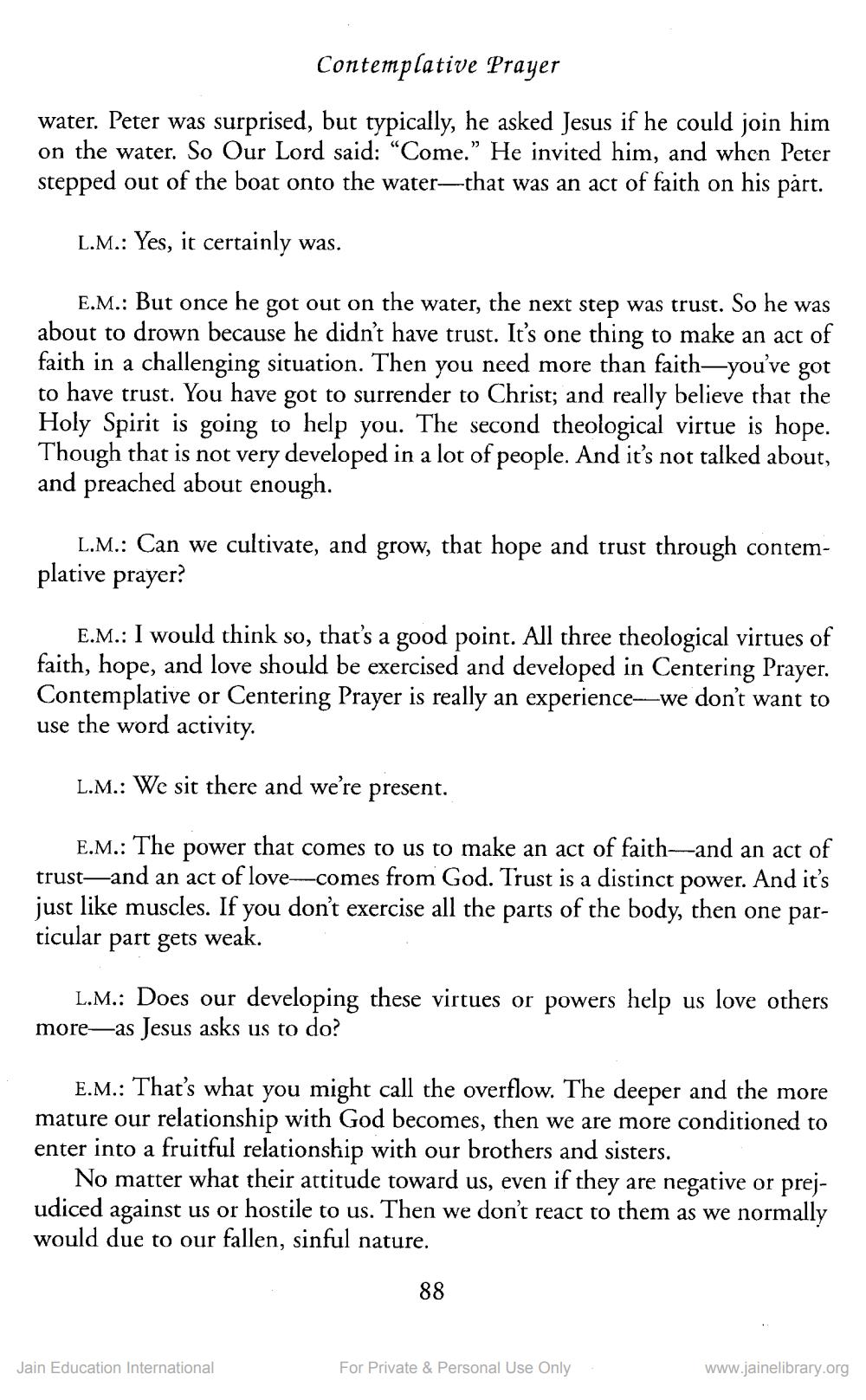________________
Contemplative Prayer
water. Peter was surprised, but typically, he asked Jesus if he could join him on the water. So Our Lord said: “Come.” He invited him, and when Peter stepped out of the boat onto the water--that was an act of faith on his pårt.
L.M.: Yes, it certainly was.
E.M.: But once he got out on the water, the next step was trust. So he was about to drown because he didn't have trust. It's one thing to make an act of faith in a challenging situation. Then you need more than faith—you've got to have trust. You have got to surrender to Christ; and really believe that the Holy Spirit is going to help you. The second theological virtue is hope. Though that is not very developed in a lot of people. And it's not talked about, and preached about enough.
L.M.: Can we cultivate, and grow, that hope and trust through contemplative prayer?
E.M.: I would think so, that's a good point. All three theological virtues of faith, hope, and love should be exercised and developed in Centering Prayer. Contemplative or Centering Prayer is really an experience—we don't want to use the word activity.
L.M.: We sit there and we're present.
E.M.: The power that comes to us to make an act of faith and an act of trust—and an act of love--comes from God. Trust is a distinct power. And it's just like muscles. If you don't exercise all the parts of the body, then one particular part gets weak.
L.M.: Does our developing these virtues or powers help us love others more—as Jesus asks us to do?
E.M.: That's what you might call the overflow. The deeper and the more mature our relationship with God becomes, then we are more conditioned to enter into a fruitful relationship with our brothers and sisters.
No matter what their attitude toward us, even if they are negative or prejudiced against us or hostile to us. Then we don't react to them as we normally would due to our fallen, sinful nature.
88
Jain Education International
For Private & Personal Use Only
www.jainelibrary.org




